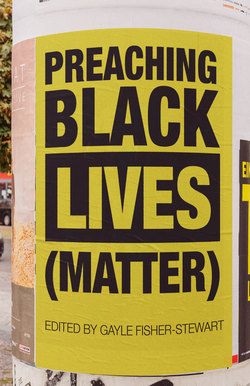Читать книгу Preaching Black Lives (Matter) - Gayle Fisher-Stewart - Страница 19
На сайте Литреса книга снята с продажи.
Оглавление11
Samaritan Sunday
LUKE 16:19–31
Gene Robinson
If you were coming to church to hear some good news this morning, this might not have been a great morning to come. We’ve got Amos, one of the great prophets, reading the riot act to the Jews because of their unfaithfulness to God. And then the first letter to Timothy, which is probably not written by Paul but by one of his protégés or associates, is also talking about being comfortable and wealthy and still being a person of God. And then if that wasn’t enough, we have the story of the rich man and Lazarus. Where is the good news in all that? We aren’t given a whole lot of details about either the rich man or Lazarus, but the writer, Luke, tells us, gives us a little hint about where he’s going because the rich man never has a name in this story, but the beggar at the gate with sores on himself and looking for scraps from the rich man’s table, he’s named. And Abraham calls him by his name. This rich man, whose name was probably known far and wide because he was rich and, therefore, probably powerful, doesn’t even rate a name in the afterlife. But Lazarus, who got the short end of the stick in real life, has been taken to the bosom of Abraham.
The sin of the rich man was not that he was rich or not even his attitude toward Lazarus; it was the disconnectedness he chose from Lazarus. I wonder out loud, did he really even want to see Lazarus at his gate? Occasionally he might have thrown some change his way or some scraps of food, but honestly, he just didn’t care all that much. Now, it’s entirely possible this rich man was really a nice guy. Maybe he worked hard; maybe he had an entrepreneurial spirit. Maybe he gave generously to his synagogue. Maybe he was really on ok guy; maybe he just didn’t connect to this man sitting at his gate.
On the other hand, he might have been awful. We’re told that he was neither awful nor good, just that he was rich. Now, Lazarus, maybe he was a good guy. Maybe he was a poor man’s hero; maybe he was poor and generous in spite of the misery he lived in. He might have been a drunk or an addict or both or worse. We are not told. We are just told he was poor. I’m going to do a side bar, so I’m going to the side. So, this story is about privilege—all kinds of privilege—though it seems to be about the privilege of wealth. As we go through the story, I want you to think about all those kinds of privilege. It’s about White people who have privilege and, as a result, benefit from a culture set up to favor them at the expense of people of color. Or it’s the privilege of being male, which comes at the expense of women. Or it’s about being able bodied, or being documented, or being—you fill in the blank. Whatever the privilege is, it’s about what the privileged person does. If we as White people are not working to undo the systemic racism that is America, then we are a part of it; we are racists unless we are working day and night to dismantle it.
If you are a man and you are talking to and about women in a way that doesn’t respect them as a human being and a child of God, if you’re not trying to dismantle the system that benefits men at the expense of women, then you are a misogynist. And so on and so on.
